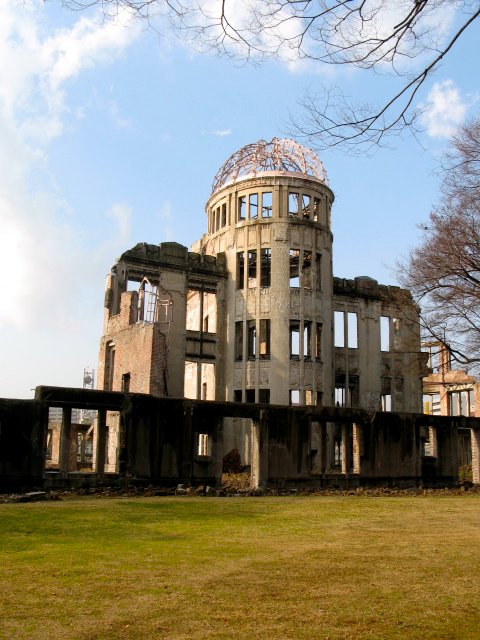It's been 70 years since the United States dropped the atomic bomb on the city of Hiroshima on August 6, 1945. From that point on, directly or indirectly, the entire world has learned to live in the shadow of the atom - coexisting with its implicit threat, and at the same time, accepting nuclear technology as a viable, though controversial, source of energy.
 The Prince Takamado Japan Centre (PTJC) will be hosting 70 Years after Hiroshima: Conceptualizing Nuclear Issues in Global Contexts 2015 Conference on September 18-19, with the aim of creating an open and balanced conversation about the challenges of living in the nuclear age. With topics ranging from the atom in popular culture to nuclear energy and policy, the interdisciplinary conference will draw upon an international panel of distinguished presenters who will address the historical event and the ways in which it continues to speak to the contemporary era. The conference is co-sponsored by the Faculty of Arts, Department of History & Classics, KIAS (Kule Institute for Advanced Study), the China Institute, SSHRC (Social Sciences and Humanities Research Council of Canada) and the McRory Law Firm.
The Prince Takamado Japan Centre (PTJC) will be hosting 70 Years after Hiroshima: Conceptualizing Nuclear Issues in Global Contexts 2015 Conference on September 18-19, with the aim of creating an open and balanced conversation about the challenges of living in the nuclear age. With topics ranging from the atom in popular culture to nuclear energy and policy, the interdisciplinary conference will draw upon an international panel of distinguished presenters who will address the historical event and the ways in which it continues to speak to the contemporary era. The conference is co-sponsored by the Faculty of Arts, Department of History & Classics, KIAS (Kule Institute for Advanced Study), the China Institute, SSHRC (Social Sciences and Humanities Research Council of Canada) and the McRory Law Firm.
According to David Marples, Chair of the Department of History & Classics and co-organizer of the PTJC Conference (along with Aya Fujiwara, PTJC Director), the 70th anniversary of Hiroshima may be viewed as a turning point for pacifist Japan. It coincides with the resumption of nuclear activities after a two-year shutdown of all nuclear plants following the Fukushima disaster, as well as the Japanese parliament's recent legislation - nicknamed the "war law" - that would allow troops to engage in combat for the first time since the Second World War; a decision that has been met with mass demonstrations in Tokyo and elsewhere.
"Japan is the only country that experienced the extreme cases of catastrophe caused by atomic bombs and the failure of the nuclear plants," says Marples. "What lessons can they send to the world in terms of the use of the atom as a weapon, a diplomatic tool, an energy source and in medicine?"
In operation since 1996, the Centre for the Teaching of Japanese Language and Culture was rededicated in 2004 as the Prince Takamado Japan Centre for Teaching and Research, in memory of the late Prince Takamado. The PTJC provides opportunities for interdisciplinary study and research in Japanese language and culture - a mission that extends into the community, both locally and across Canada through the sponsorship and organization of various events and activities.
Marples says that the scope of this particular PTJC initiative extends even further, to the global community. "[The PTJC] believes that the conference is addressing issues of vital importance to the world. Are the benefits of the atom outweighed by the drawbacks? When will there be a terrorist use of a nuclear weapon? How can nations address this issue to ensure peace? Should the atom be abandoned altogether? We have gathered a wide array of world-renowned scholars, local scholars and graduate students to address these issues."
More information about the conference here.